Caring for Houseplants
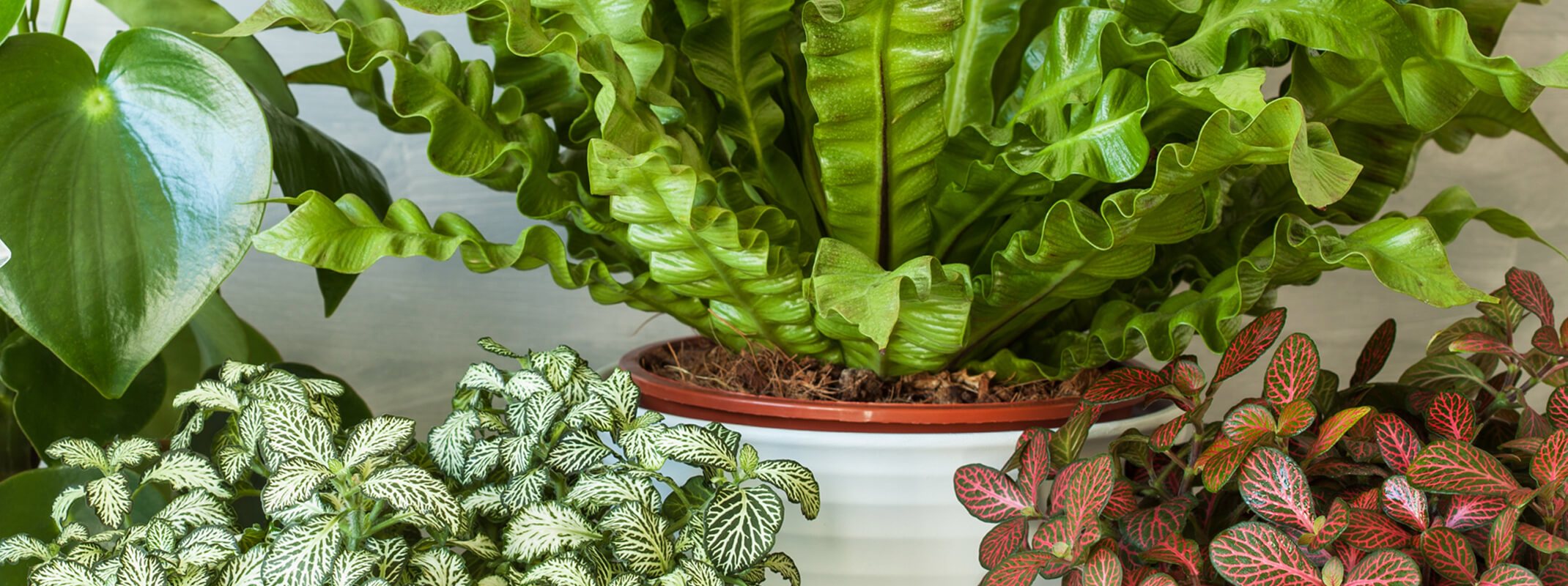
Caring for Houseplants
It seems like some people were born to care for houseplants, while others feel they’re the kiss of death for their beloved beauties. Fear not! With the right tools and a bit of knowledge, even a first time houseplant parent can experience immediate success.
Houseplants provide many daily benefits. They increase and clean the oxygen we breathe and increase the humidity in the air which decreases the frequency of dry skin, colds, sore throats and dry coughs. Houseplants also improve your work environment by increasing concentration, memory and productivity. Sometimes it takes a little work, but there is a houseplant out there that will flourish in your environment and under your care. Visit SummerWinds Nursery and see our wide variety of houseplants for sale.
When looking at houseplants for your home or office, there are four things you want to consider before selecting your plant.
Light
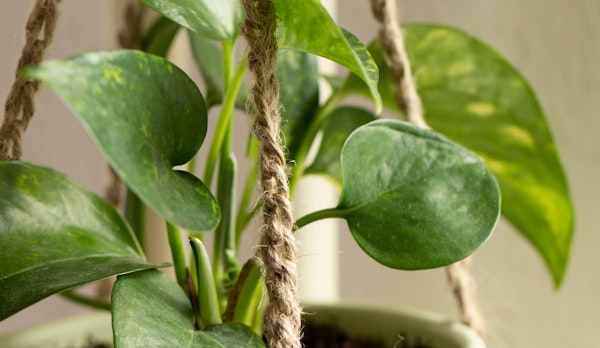
Read the label on your plant to determine how much sunlight your houseplants need.
1. Bright Light - usually means a sunny, southern or western facing window that receives direct light. Plants that require bright light need a minimum of five to six hours of sunlight every day. During the winter months, this can be a challenge which often leads one to moving a plant closer to the sunny window. However, with the sun often comes a cold draft from the window which the plant cannot tolerate.2. Indirect or Filtered Light – is much easier to come by as indirect light can be found in areas of the home with east-facing windows or places within rooms that receive filtered full light from a south or west facing window.
3. Low Light – so what’s left? North facing windows, or rooms that have windows that let very little light in would qualify as low light. We most likely have many rooms in our home, especially in winter that meet the low light standards for houseplants.
To find the ideal growing location, your may have to move your houseplants a few times. If you pay attention to your plant, it will tell you if it needs to be moved.
| Signs your plant isn't getting enough light: | Signs your plant is getting too much light: |
|---|---|
| New leaves are smaller than existing ones | Leaves turn brown, or you see scorched patches on leaves |
| leaves turn yellow and fall off | Leaf color looks faded or washed out |
| Slow growth or none at all | Plant begins to wilt in the afternoon |
| Flowering plants aren’t blooming | Leaves dry out and fall off |
| New growth is reaching out and growing towards the light |
Watering your Houseplant
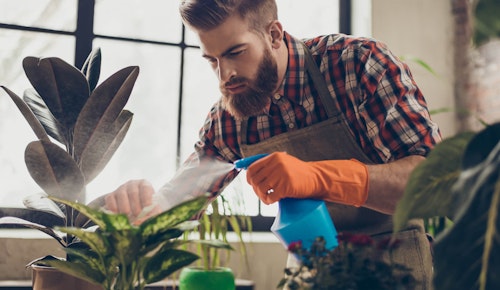
In most cases, the simplest way to check if your indoor houseplants need watering is to place the tip of your finger about 1 inch into the soil from the top. If it's still dry at the tip of the finger, then water.
- Water your houseplants from the top down. Gently push the leaves aside and add water for several seconds. Make sure you read the label to understand how best to care for your plant or ask one of SummerWinds’ Trusted Garden Advisors.
- Water plants that are in sunny windows more often than those in darker places
- Decrease watering during the winter months, and increase when they are blooming and growing
- Use tap water, but there are chemicals in it. Some plants will have reactions to these chemicals. To reduce these effects, let your tap water to sit out at room temperature overnight, before watering.
- Rain or distilled water is best for plants with a high sensitivity to chemicals in water.
- Don’t allow your houseplant to sit in water for more than 20 to 30 minutes. This can lead to rotting plans or salt burn.
When to water
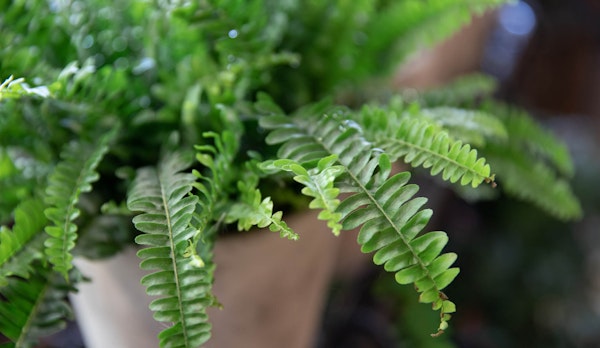
- Your houseplants will tell you if they are not getting the correct amount of water. Signs to look for are:
- The soil is so hard that you can't feel moisture with your finger
- Brown, Crisp Leaves
- Plant is not blooming when it should
- Drooping or sagging leaves or stems
- Soggy Soil – Soil that is not able to dry out can lead to root rot and disease
Finding the right soil:
For most indoor houseplant species, we recommend SummerWinds Potting Soil. It’s a natural and organic soil that is ideal for all types of indoor and outdoor container gardening. It is blended with sphagnum peat moss, perlite, pumice, bat guano, kelp meal and other ingredients for long lasting results.
For those plants that need better drainage, consider using a cactus and succulent mix. We recommend E.B. Stone Organics Cactus Mix.
Fertilizing your houseplants

Eleanor's VF-11 Plant Food works best for most varieties of houseplants. Occasional fertilizing will give your houseplants the little extra boost when needed. In general, we recommend fertilizing every 2 weeks.
If you pay attention to what your plants are telling you, caring for houseplants becomes quite easy.
Houseplant Essentials
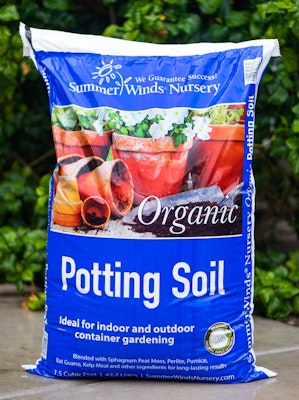
SummerWinds Potting Soil
A happy plant starts with begins with great soil - Our SummerWinds potting soil is Organic and registered with CDFA seal of approval. Ideal for indoor and outdoor container gardening.
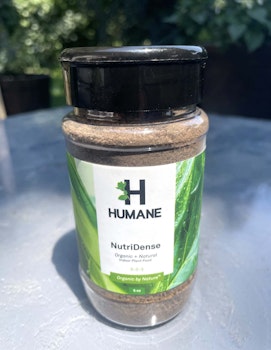
Humane NutriDense Organic Houseplant Food
Their Organic Indoor Plant Food, NutriDense, is the perfect solution for indoor plants. This fertilizer is made with only the highest quality ingredients, ensuring that plants receive the nutrients they need to thrive. As a family farm-owned and operated business, they take pride in providing customers with a product that is both safe for people and pets, and organic by nature.

Soil Moisture Sensor Meter - Soil Water Monitor
Indoor or outdoor use. Take the guess work out of the watering needs of your plants with this handy little tool. Insert the probe int the soil approximately 3 to 4 inches to receive your reading.
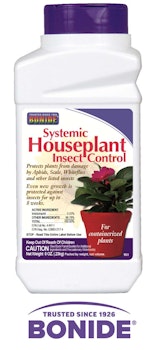
Systemic Houseplant Insect Control
Bonide's Houseplant Insect Control protects plants from damage by aphids, whiteflies and other insects. Even new growth is protected against insects for up to 8 weeks. Long lasting, effective protection for use in potted plants. Promotes strong roots and beautiful blooms. No spraying - No mess.
Check out our blog: We've Selected "The Best" In Houseplants - Read Blog
Stop in today and let one of our Trusted Garden Advisors help you select the perfect indoor houseplants for your home.

